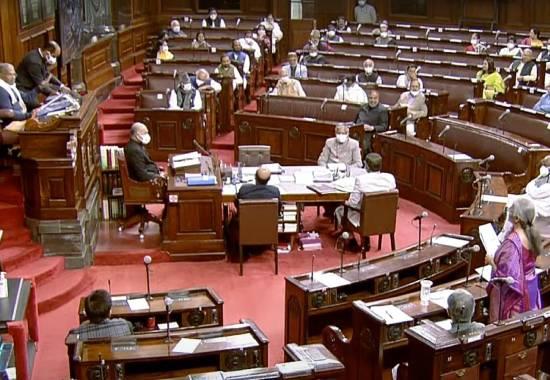Following the announcement of the results of assembly elections 2022 of 5 states, the spotlight has shifted to the upcoming Rajya Sabha (Upper House) elections. With BJP winning four out of five assembly elections, the saffron party is looking to bolster its quantum of members in the Rajya Sabha. 13 Rajya Sabha seats will be up for the political parties to grab as biennial elections to the Upper House will be held in March and June.
Ever since the unveiling of assembly elections 2022 results, political parties are busy nominating their candidates for the upcoming Upper House 2022 elections. For instance, the newly-formed Punjab government nominated five members for the Rajya Sabha seats, The Punjab government is governed by the Aam Aadmi Party (AAP). Now those who are wondering what is Rajya Sabha (Upper House) and how it is significant in Indian politics can read further:
What is Rajya Sabha/Upper House?
Rajya Sabha is the Upper House of the parliament and is also called as House of Elders in the Indian Parliament. Rajya Sabha is empowered to protect the interests of the States and Union Territories if there is interference by the centre in their work. The maximum strength (most number of members) of Rajya Sabha is 250, out of which 12 are nominated by the President of India and 238 are representatives of the States and Union Territories.
Upper House significance in Indian Politics
Indian Parliament consists of Lok Sabha (Lower House), Rajya Sabha (Upper House), and the President. Rajya Sabha (Upper House) is the 'Council of States' and it is the permanent house, therefore it cannot be a subject of dissolution. A member who is elected for a full term serves for a period of six years. The representatives of each State and 2 Union territories (UT) are elected by the elected members of the Legislative Assembly by means of the single transferable vote, in accordance with the system of proportional representation. The Rajya Sabha members of the Union Territory are elected by electoral college form.
Now, the question arises how the Rajya Sabha is significant for Indian politics?
It is pertinent to mention here that a writ can only be turned into law only if it is passed through both the houses i.e. the Lower House and the Upper House. The writ is first tabled in the Lok Sabha (Lower House), then it is presented in the Upper House and once it is cleared from both the houses the writ is sent to the President of India on whose approval a writ is turned into law.
Apart from its legislative responsibility, the Upper House also holds some significant powers which can be implemented by its members.
Rajya Sabha also acts as a watchdog i.e. it ensures that the executive (the government) is performing its duties satisfactorily.
The specially elected members of the Upper House also have the responsibility to put forth the views and requirements of the people of their constituency.
One of the major power of the Upper House is to oversee the revenues and expenditures proposed by the government of India.
The members of the Upper House also have an additional responsibility i.e. Making laws on any subject in the State List and Making laws to create services at the national level.
Now, with so many powers on the line, the ruling party (BJP) is looking to bolster its stronghold in the Rajya Sabha. BJP's majority in the Rajya Sabha or the Upper House acts as a cushion whenever there is a writ presented by them in the Parliament. Therefore, holding a majority in the Upper House is quite significant in Indian Politics.
